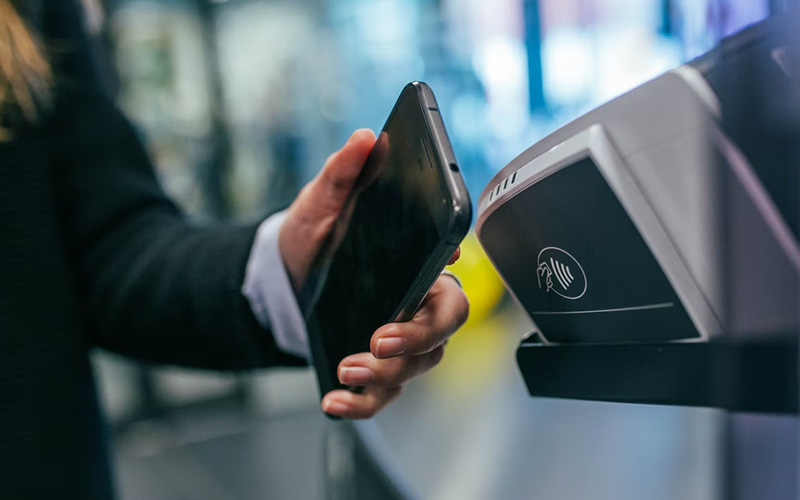
NFTs as a Payment Method in Casinos: Potential and Regulation

Author: Ivan Mostovoy
Updated23 june 2025
With the development of Web3 and digital assets in the entertainment industry, new financial systems are being used. Operators are increasingly considering non-fungible tokens as an alternative way of depositing and withdrawing funds, noting their high security and global availability.
NFTs as a Financial Instrument
NFT in iGaming Payments
Facts & Market
Usage Formats
- Deposit NFTs = crypto equivalent or VIP access
- Withdrawals via NFT → resale on marketplaces
- NFT-wallet = multi-currency case (BTC, ETH, in-game tokens)
Legal Aspects
Risks
AML/KYC, reclassification as securitiesBans
UKGC, MGA, AGCO, NJDGEAdvantages
& anonymity
accessibility
chargebacks
Jurisdictions
Curaçao
NFT allowed with AML/KYC + B2C licenseCosta Rica
Only for foreign players, locals restrictedUAE (DMCC, VARA)
Supportive for Web3, NFT = game items (no real bets)Non-fungible tokens have firmly established themselves in the casino and blockchain industries as digital assets with unique characteristics.
In addition to collectables or in-game artefacts, they are increasingly being considered as an alternative way of depositing and withdrawing money, especially on Web3 platforms and entertainment based on a distributed ledger.
In iGaming projects, tokens can be used as:
- a tool for replenishing accounts;
- a kind of cash-out;
- a currency within the casino;
- an investment asset.
Let us consider the most popular methods of using NFTs.
Deposit Token
Players buy digital funds from a platform or marketplace and then use them to place a bet.
A unique element can be presented as:
- NFT with a cryptocurrency equivalent (for example, 1 monetary unit is equal to 100 USDT);
- non-fungible token with the functionality of an “access key” to tournaments or VIP programs (paid entries).
For example, the Rollbit entertainment project offers exclusive assets that allow users to quickly make deposits with increased limits.
Cash-Out Methods
Gamblers have the right to exchange their winnings for NFTs, which can then be:
- sold in an external market (for example, OpenSea);
- used as collateral or the subject of exchange;
- saved as an asset with a possible price increase.
Thus, the BC.Game portal allows customers to turn prizes into collectables that have high value in the secondary market.
Multi-Currency Settlement Platform
Some projects offer NFTs as a “case” for several elements. For example, one non-fungible token can contain ETH, BTC, and internal assets, acting as a multi-currency depository.
The ZED RUN iGaming startup follows a similar practice. The betting resource allows clients to buy “horses” in the form of digital funds, which can then be sold or rented, receiving income from racing.
Advantages of Using NFTs in the Casino Payment System

Let us consider why many operators are currently focusing on non-fungible tokens.
Independence from Traditional Financial Institutions
Non-fungible tokens operate on blockchain platforms (for example, Ethereum, Polygon, and Solana), which allows casinos and players to conduct transactions without intermediaries (banks, processing systems, or traditional payment gateways).
The advantages of decentralised work include the following:
- reduced commission fees;
- minimum restrictions on countries and currencies;
- no freezes or payment rejections by banks.
Privacy and Personal Data Protection
NFT transactions do not require the provision of confidential information (unless there is KYC). Customers do not need to share details that they presented in financial institutions, which is especially important for countries with sensitive regulations or restrictions on gambling.
Benefits of using non-fungible tokens:
- anonymity;
- increased security;
- minimisation of data leakage and fraud.
Instant Transactions and High Speed
NFTs can be instantly transferred through blockchain networks. The process is often faster than traditional banking or even crypto settlements, especially when using Layer 2 protocols.
Benefits of integrating tokens:
- instant replenishment;
- quick withdrawals (if there is a liquid market);
- reduced time on serving customers.
International Availability
Players from any country can buy an NFT (in exchange for cryptocurrency or fiat assets) and use it on the entertainment platform. This is especially true for regions with restrictions on traditional payments (India, Turkey, and Latin American jurisdictions) but the high popularity of betting among the local population.
The use of non-fungible tokens provides:
- expansion of the geography of users;
- an inflow of new clients from developing markets;
- lowering the entry barriers to the casino resource.
Integration with the Gameplay
NFTs can be applied not only as a payment but also as an internal asset:
- a pass to a VIP tournament;
- a token that gives cashback, an increased limit, or exclusive bonuses;
- a collateral for higher bets.
This approach guarantees increased engagement and LTV of customers. Operators can gamify deposits, which turns the process of replenishing an account into an attractive mini-session.
Secondary Market and Liquidity
A client can sell NFTs on marketplaces (OpenSea, Blur, etc.) or transfer them to another person, even if they no longer want to play. This ensures fast withdrawal of funds at any time and convenient conversion of winnings into digital assets or fiat money. Besides, NFTs can be used as an investment.
Creation of a Unique Ecosystem
Entrepreneurs can issue branded non-fungible tokens that become part of the casino and community’s identity. This builds customer loyalty, increases retention, and stimulates a smooth transition from a traditional entertainment site to a Web3 “player-co-owner” model.
NFTs can be presented in the form of:
- special clubs, access levels, and ranks;
- traded bonuses, trophies, and other valuable items.
Minimisation of Chargebacks and Payment Disputes
Traditional settlement methods (for example, bank cards or e-wallets) are subject to refund. These are situations in which clients (often unreasonably) demand compensation after replenishing their casino accounts.
NFTs are a final transaction in the blockchain, which cannot be reversed. In the case of using non-fungible tokens, entrepreneurs will not lose profits due to payment disputes with consumers.
The implementation of such solutions provides:
- reduction in operational losses;
- decrease in the number of fraudulent cases;
- creation of a reliable financial framework.
The Legal Landscape for the Use of NFTs in iGaming

Digital assets as a technological and financial instrument are still in a grey area, creating several difficulties at once.
The Risk of Retraining NFTs as Securities
In many countries (especially in the US), tokens that promise potential profit may fall under the definition of an “investment vehicle”.
The owners of entertainment projects are required to:
- register with a Commission on securities (for example, the SEC in the US);
- provide information about the issuer, its legal status, and profitability model;
- comply with the standards of investor protection.
Applicability of AML and Financial Monitoring Rules
As digital assets with a market value, NFTs can be used to:
- cash out criminally obtained funds;
- reveal tax evasion schemes;
- transfer funds to offshore zones.
As a result, the use of non-fungible tokens is increasingly subject to:
- AML/KYC verification requirements;
- obligations to identify the ultimate beneficiary (UBO);
- suspicious transaction reporting standards (STR/SAR).
Traditional NFT platforms (such as OpenSea or Blur) do not always perform full KYC verification, which creates a legal conflict when using unique assets in gambling.
Restrictions from Licensing Authorities
Direct bans on the use of unverified tokens (including NFTs) exist in:
- UK Gambling Commission. Each crypto asset requires approval and assessment of the origin of funds.
- Malta Gaming Authority (MGA). Only certified payment instruments and assets can be used on entertainment portals.
- AGCO (Ontario, Canada). The local regulator prohibits the circulation of tokens without a licence.
- NJDGE (New Jersey, USA). NFTs can be considered illegal lotteries, so operators must first obtain permission to use them.
KYC and AML Risks
Non-fungible tokens, especially when interacting with DeFi protocols, are not tied to a specific person, which complicates compliance with the legislation.
Problems that entrepreneurs may face:
- lack of verification of the owner's identity;
- inability to establish the source of funds;
- use of digital coins as a “transit bridge” for cashing out and laundering money.
Jurisdictions That Allow NFT Payments

Despite the restrictions, many countries are actively updating their regulatory frameworks in the entertainment sector. The purpose of the changes is to include cryptocurrency and NFTs in the field of regulated assets.
Curacao
In 2024, the local government approved a new gambling law (LOK), which performed the following tasks:
- cancelled the old Master/Sub licensing system;
- introduced a single regulator — Curacao Gaming Authority (CGA);
- defined digital assets as acceptable means of payment, subject to disclosure of all risks and compliance with AML/KYC requirements;
- obliged operators to identify customers when accepting cryptocurrencies.
For entrepreneurs to legally use non-fungible tokens in a gambling platform, they must complete several steps:
- apply for a B2C licence to the CGA;
- pass an AML/KYC audit;
- demonstrate a willingness to verify NFT transactions through blockchain analysis (Chainalysis, Elliptic);
- justify compliance with AML requirements;
- coordinate a smart contract architecture with the regulator.
Currently, Curacao permits have been obtained by Rollbit, BC.Game, MetaWin, EarnBet, and other startups based on a distributed ledger.
Costa Rica
The country does not regulate online casinos or issue iGaming certificates. Instead, companies can register as providers of marketing services and data processing. This approach is widely used by Web3 entrepreneurs to work outside the region.
Features of NFT regulation:
- it is allowed to interact with foreign players;
- it is prohibited to accept bets from Costa Rican citizens (this is a severe restriction).
In the jurisdiction, operators can easily open a gambling company and gain access to advanced payment and IT infrastructure. The country is actively developing outsourcing, so there are many data centres and offices of large Big Tech brands (Intel, HP, or Amazon Web Services) here.
UAE
The United Arab Emirates is creating favourable conditions for the legal launch of Web3 games, NFT platforms, and blockchain projects related to the entertainment industry.
Digital Asset Framework 2023 is a special regulatory act governing the circulation of NFTs, DAO, DeFi, etc.
The document defines:
- rules for issuing financial and non-financial licences for projects through digital assets;
- supported activities (NFT trading, consideration of such coins as an access or reward method, as well as the development of DAO-managed gaming structures).
DMCC is the largest free-zone hub for crypto projects in the region. In 2024–2025, more than 600 Web3 enterprises were registered here. These are studios releasing NFT solutions, metaverses, and blockchain casinos.
Operators can launch hybrid portals and gambling elements if they do not fall under the federal ban.
Key requirements of the Digital Asset Framework:
- no real bets;
- certification of NFTs as game items, not entertainment assets.
In this case, operators receive DMCC support when obtaining permits from the Dubai Virtual Assets Regulatory Authority (VARA).
The Main Things about NFTs as a Financial Instrument
Non-fungible tokens are a popular method of depositing and withdrawing funds in online casinos.
Key aspects that entrepreneurs should take into account:
- The solution has many advantages, from privacy and speed to gamification and building a proprietary loyalty system. The payment tool ensures international availability of bets and protects project owners from chargeback risks.
- The UAE, Curacao, and Costa Rica are countries that have created a favourable business climate for launching entertainment startups with NFTs and Web3 elements. Operators can quickly open a gambling portal, attract huge investments, and create a unique blockchain-based ecosystem.
Check the information used to contact us carefully. It is necessary for your safety.
Fraudsters can use contacts that look like ours to scam customers. Therefore, we ask you to enter only the addresses that are indicated on our official website.
Be careful! Our team is not responsible for the activities of persons using similar contact details.


















